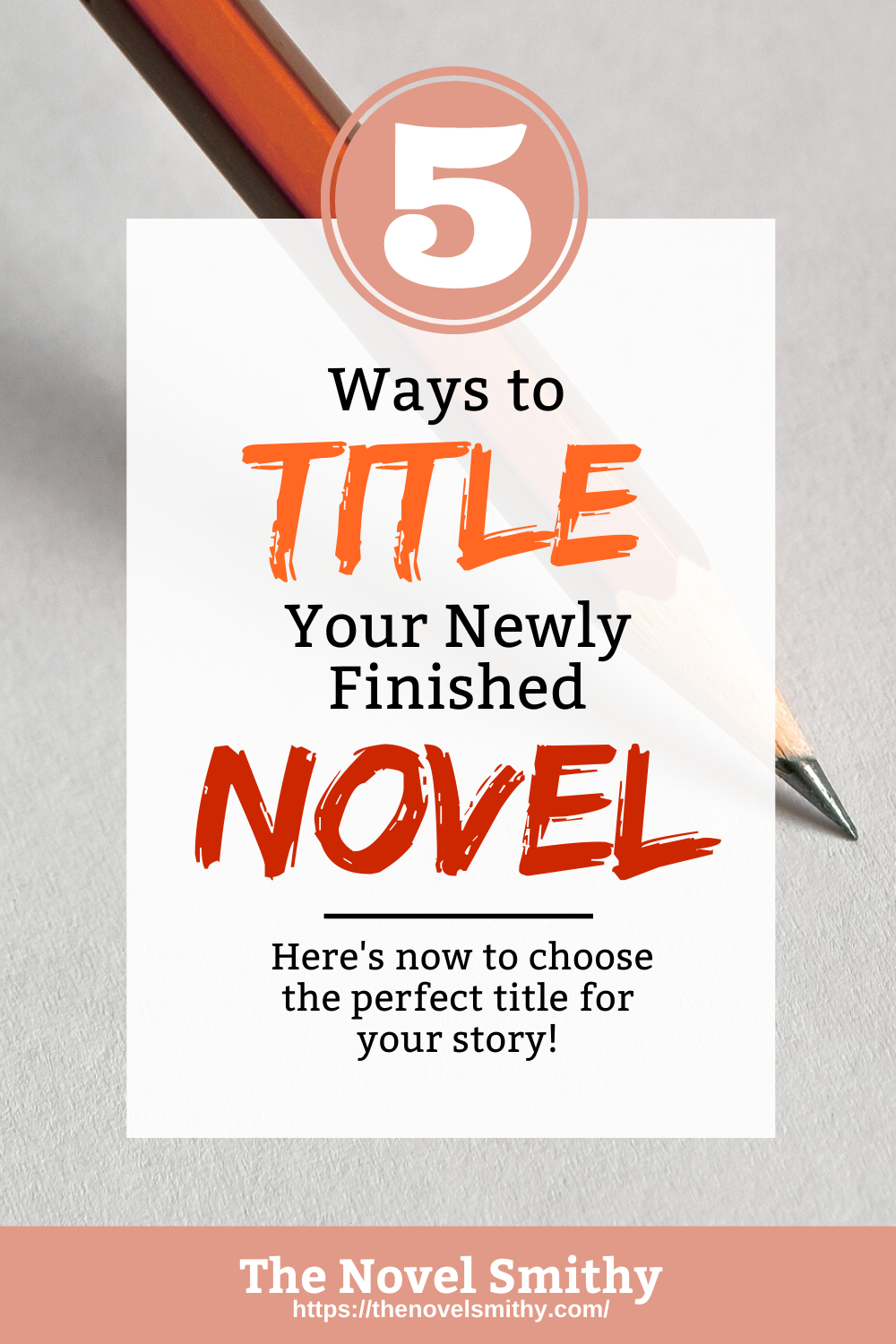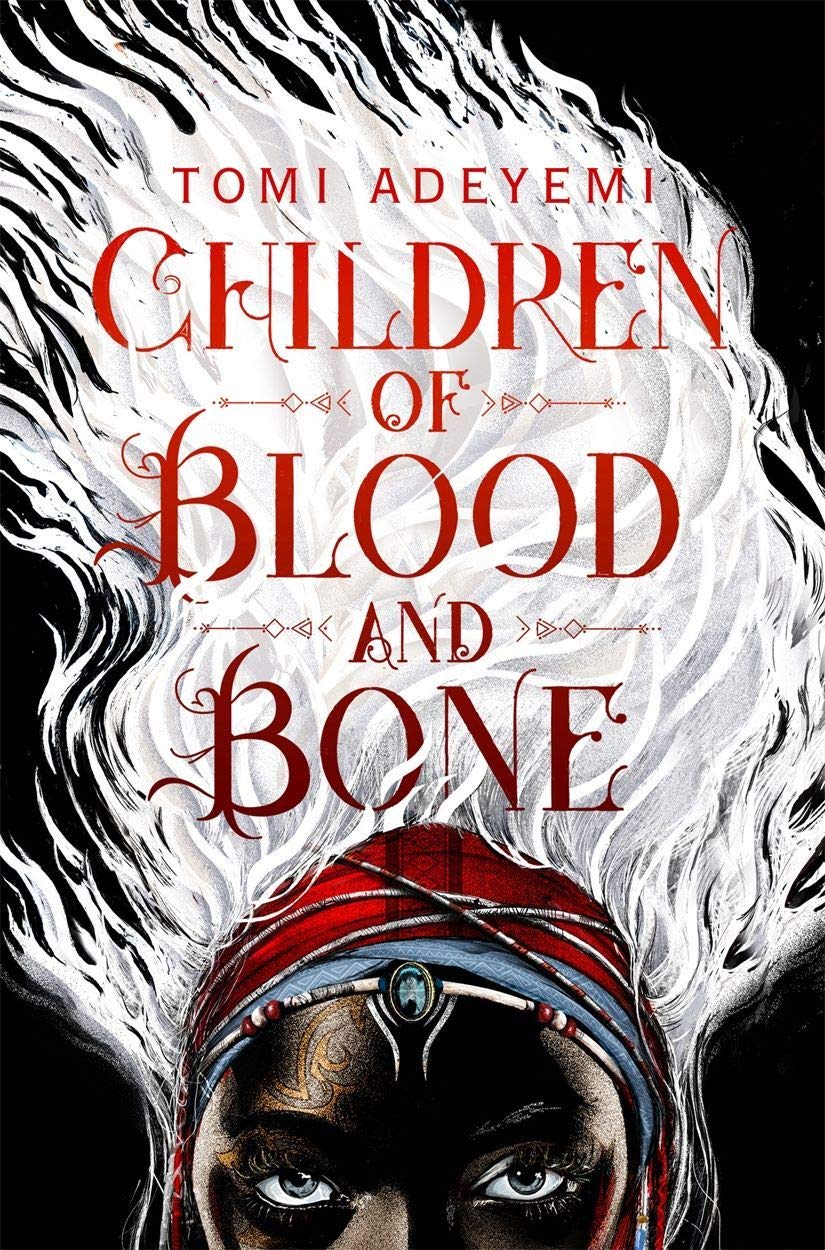5 Ways to Title Your Newly Finished Novel
Your novel’s title will reveal a lot about your story.
From your story’s mood to its genre and even your style as an author, your novel’s title will play a critical role in shaping readers’ first impressions of your story. Because of this, choosing the right title for your novel is a key step to attracting new readers and succeeding as an author—as well as one of the trickier parts of self-publishing a novel.
Fortunately, no matter how nebulous this topic may seem, there are actually a few common tricks you can use to help you pick your novel’s title. From studying your genre to finding your competition, here are five ways to choose the perfect title for your novel!
_______________________________
This article is adapted from an excerpt of my book, The Ten Day Author. If you like what you see, you can find much more detail—including step-by-step guides, templates, and examples to walk you through the self-publishing process—in the book itself.
_______________________________
The Power of Your Novel’s Title
Contents
 When it comes to self-publishing a novel, the things surrounding your story are often just as important as your story itself. From your cover to your book’s blurb and reviews, readers need a way to judge whether your novel is right for them—and without these elements in place, most readers will move on.
When it comes to self-publishing a novel, the things surrounding your story are often just as important as your story itself. From your cover to your book’s blurb and reviews, readers need a way to judge whether your novel is right for them—and without these elements in place, most readers will move on.
This is no less true for your novel’s title.
While titles can get lost amid larger things like covers and reviews, you might be surprised by just how influential your novel’s title can be.
Not only will it set your readers’ expectations, but it’ll also help you attract the right readers for your novel. After all, your story won’t be for everyone, meaning your novel’s title needs to draw in the kinds of readers most likely to love your writing.
Of course, this is a delicate balance to strike.
Many writers outright copy popular titles from their novel’s genre, becoming practically invisible in the process. Meanwhile, others choose something so out of left field that they end up attracting readers who aren’t interested in their story at all—while also missing out on the ones who are.
This is a big reason why titling a novel can feel so difficult, and why simply publishing your novel under your working title may not be the best choice. Fortunately, there are a ton of ways to title a novel, as well as a few tricks that can help you judge whether your current choice is the right one for your story. However, before we dive into those, let’s talk about what makes for a compelling title in the first place…
What Shapes Your Novel’s Title?
By this point in the writing process, I imagine you’ve already chosen some kind of title for your novel—but whether that title works from a publishing perspective is where things get tricky.
You see, as hard as it is for many authors to accept, a book’s title is more of a sales tool than anything else. What you call your novel should not only attract your target readers, but also signal what your novel is about, what genre it’s in, and whether your reader will enjoy it.
Because of this, your novel’s title makes a promise to your reader. When they first read your title, you’re telling them what kind of adventure they’re about to embark on—as well as whether or not it’s worth their time.
In the end, there are a few key roles your novel’s title will need to play. It should:
- Mesh with your novel’s genre
- Highlight a key element of your story
- Set the right tone
- Stand out from your competition
- And have its own unique flair
Of course, this probably seems like a tall order, and at first glance it may even feel a bit depressing. What about the creative aspects of titling a novel? What about the dream title you already have your heart set on?
Well, don’t get me wrong—there is certainly a creative element to titling a novel, and whatever title you choose should be something you’re happy with. Ultimately, rather than forgoing creativity for the sake of sales, your goal is to blend your creative expression with a title your readers will respond to. The real question is, how can you achieve that careful balance?
5 Ways to Pick the Right Title for Your Novel
Study Your Genre:
First up, let’s talk about your novel’s genre.
When it comes to titling a novel, taking the time to understand the expectations of your genre is one of the most important things you can do. Not only will this genre determine what kinds of readers you hope to attract, but also what types of titles those readers respond to.
With that said, I recommend taking some time to browse the bestsellers lists for the genre you hope to publish in. As you go, you’ll likely find that most of the novels on these lists follow a few basic naming conventions:
Character Names: The Great Gatsby, Black Beauty
Describing a Character: The Hobbit, The Maze Runner
Major Locations or Settings: Jurassic Park, Where the Wild Things Are
Unique Objects or Elements: The Maltese Falcon, The Golden Compass
An Important Event: The Hunger Games, The Lord of the Rings: Return of the King
The Story’s Core Idea: A Game of Thrones, Pride and Prejudice
Of course, some genres take this even further in the form of specific naming patterns.

For instance, there’s been a trend in YA fantasy where novels are titled using a “(blank) of (blank) and (blank)” pattern. You can see this by looking at a few major releases, with two notable examples being A Court of Thorns and Roses and Children of Blood and Bone. As a result, if you picked up a book titled A Daughter of Vines and Leaves, you could guess with some certainty which genre it belonged to.
So, based on your findings, figure out what conventions are most common in your novel’s genre—as well as how you can apply those conventions to your own title.
Choose Your Topic:
Next up, we need to look at your title’s subject.
Even in genres that don’t use distinct patterns like young adult, your title’s subject matter will go a long way towards helping you attract the right readers and shape their first impressions of your story. This is because the topics you focus on should match what your story focuses on as well—a character-focused novel will likely have a character-focused title, and vice versa for a plot-focused novel.
With that said, take a moment to brainstorm a few words that represent your story.
List one or two options for each of the groups below, specifically choosing words that could work in your novel’s title—as well as words that reflect the kind of story you’re about to tell:
- Major characters
- Important events
- Key locations
- Unique objects
- Landmarks, creatures, or powers
- Adjectives that describe your story
Once your list is complete, all you need to do is mix and match these words using one of the naming conventions we discussed earlier!
Set the Mood:
As you might imagine, your novel’s title will evoke a specific mood, meaning the best titles are those that mesh with the tone of their respective stories.
For instance, a title like The Killer’s Daughter might be a wonderful sweet romance beneath the surface, but you’ll have a hard time convincing readers of that with a title that so loudly screams “thriller.” This is because it evokes a very specific, suspenseful mood—something sweet romance readers aren’t looking for.
What’s more, this principle applies to every kind of story!
No matter what type of story you’ve written, your title needs to match the tone and mood of that story. If your novel is suspenseful and fast-paced, your title should reflect that—and if your novel is sedate and introspective, your title should reflect that too.
So, once you have a few titles in mind, consider the mood they evoke and whether that mood fits with the story you’re trying to tell—as well as with the readers you’re hoping to attract.
Consider Your Competition:
From there, it’s time to consider your competition.
While I’ve talked a lot about ensuring your novel’s title meshes well with others in your genre, there’s an important flip-side to this. You see, it’s easy to blend in with the other books in your genre, so much so that your novel no longer stands out. You want to meet your readers’ expectations—but, at the same time, you also don’t want to become forgettable.
Instead, your job is to strike a happy medium.
As tricky as this may be, you need to balance both matching the conventions of your genre with creating your own distinct identity. This likely won’t be something you nail every time—and that’s ok—but it’s still well worth keeping in mind as you experiment with different titles.
Likewise, you also want to make sure your novel’s title hasn’t already been taken by another book, play, or movie. While it may be frustrating to realize your dream title has been swept out from under you, you won’t be doing yourself any favors by picking a title that’s already in use—not only is it disrespectful to the other author, but you’ll have a much harder time marketing your story as well.
Find Your Unique Flair:
Last but not least, your novel’s title needs its own unique flair.
While you want your novel’s title to help sell more copies and attract more readers, at the end of the day your title is also personal to you. You need to be happy with the title you’ve chosen, and you also need to feel proud to call your novel by that name—otherwise, no amount of sales will make you truly happy with the final result.

So, while you should definitely test your novel’s title compared to others in your genre, don’t be afraid to get creative at the same time. Pick a title that feels unique and impactful to you, and then find ways to make that title work within the genre you’ve chosen.
After all, the patterns and trends we’ve been talking about would never have existed if someone didn’t blaze their own trail in the first place!
The Title You Love or a Title That Sells?
In the end, which title is right for you will depend on how you define success as an author.
Ideally, you’ll find your WIP title already meshes well with the others in your genre, or that is only requires a minor bit of tweaking to get it up to speed. However, it’s also possible your current title simply doesn’t work from a publishing perspective, in which case you have a decision to make—should you keep it, or should you scrap it?
This is where your publishing goals come into play.
If you’re publishing purely for your own self-fulfillment, then you have a lot more leeway in how you title your novel. On the other hand though, if you’re looking to sell books first and foremost, this will be a much harder decision to make. While you need to choose a title that feels right to you, if you’re concerned about sales, then you’ll likely want a more genre-appropriate title.
Overall, only you can make that choice, but I hope these five tips will help you along the way! After all, choosing an official title for your novel is an exciting process—and no matter what title you land on, it means you’re one step closer to finally publishing your novel. 🙂


I wish I’d had you for a mentor when I published my first non fiction book in 2017. My WIP title always was “Light from a Dark Night” which describes our experience adopting our daughter from China. So that’s what I went with because honestly I’d spent so much time with the title it felt almost disrespectful to not use it! However, to my dismay, the book came up in searches with dark, romance novels which was nothing like the content of my book. I also didn’t give myself good searchable words in the title. The words: light, dark, night don’t relate well to a word like “adoption”. A great subtitle may have helped me. So, while I have great reviews from those who have read the book, I have not sold many books. A question would be whether or not I should take the time to republish the book with the same title but add a subtitle or to change the title altogether and republish? Thanks for your blog, I really enjoy reading it.
Hi Anne,
That’s a difficult question… It may be worth it to delist and republish the book under a new name, complete with a new burst of promotion (almost as if you were launching a brand new book), but that will definitely require a lot of work. Still, if you’re up for it, that could be a good path to take. That way you can give the book a fresh start under a more genre appropriate name.
Thanks for your thoughts. I definitly will get my hands on your next book, all the other were more than worth the money.
I don’t have a finished book (now!) But I have drafts of three different stories.
For one I had found a title, I fell in love with. ” Elfentod” ( I am german), it would translate to Elfdeath. But when I browsed this title it was already taken, three times! ( different subtitle.
So now I don’ t want to name my other stories, and so the working titles are the names of the main charakters: “Grennan”, Borrin and Dandun” Lorrn and Jalen”.
How is rhe working title of your fiction book?
Hey Ulrike,
Yeah, finding your dream title is already taken is never fun. I’m sorry to hear that happened to you. 🙁 I think using your protagonist’s name as a working title is a great idea though! Plus, it gives you time to come up with official titles down the road.
At the moment, my current fiction project is called The Child Hunters. I’m looking forward to hopefully publishing it later this year.
Trust Not a Wolf
(YA fantasy)
Teenage girl’s birth father is a shape-shifting werewolf who tries to divert her from her calling in his alter ego shape.